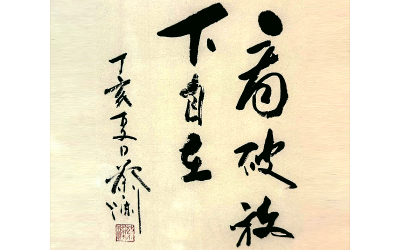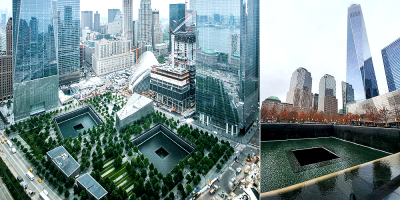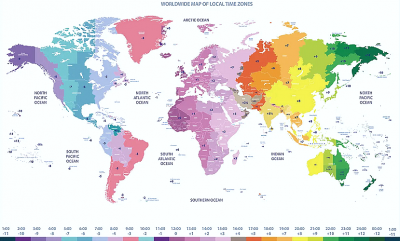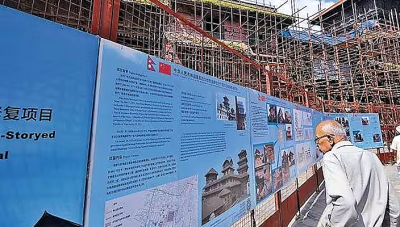Joshi, the chef at Kahtmandu’s Spanish restaurant, used to work as a sous chef for many years in the Spanish resort city of Valencia, and is therefore very good at cooking, in particular gazpacho (a soup made of red tomato, cucumber and other ingredients) as well as chicken paella.
As a matter of fact, this has been a symbol of Nepal’s years of relentless effort in exploring global tourism, and an outcome of the government’s initiatives to woo back its experts overseas.
The Nepalese government has also encouraged domestic as well as international investors to jointly develop the hotel industry, F&B as well as helicopter sightseeing, among other tourism projects, the most successful being the numerous international professional Himalaya trekking companies set up in the country in recent years.
To be honest, a landlocked country like Nepal may have to rely solely on its mountaineering tourist industry and the export of migrant workers to support its economy.
But sadly, the per capita income of some 30 million Nepalis is barely around US$1,400. As such, the country’s tourism board has to mobiliae the entire nation and get the people adequately prepared to welcome a targeted two million foreign tourists, up from one million in the past.

No wonder local eco guide Jeevan and the porters get so excited, hoping that this will greatly improve the living standard of their families soon, especially education for their children.
But very often the plans don’t go as anticipated. Almost all their initial plans have been disrupted by the two-year coronavirus pandemic which has plunged the entire nation into an unknown realm of panic.
Joshi sighed, “While it’s definitely better to make paella with seafood, but the country has since April banned the import of seafood, along with other luxury items, automobiles, tobacco, liquors, fashion accessories and even chocolates. Only essential items such as flour, sugar and medications are allowed.”
Indeed, Nepal is also suffering from a severe fuel and electricity shortage that has since triggered a spiralling inflation.
Nepal’s central bank explained to the worried CEOs of the country’s 27 commercial banks: our foreign reserves are running short and forex credit can only last for another six months. We must never allow ourselves to go down the way of Sri Lanka on the verge of bankruptcy!
Historically never colonised by any Western power, it appears that Nepal is a country with a lot of stories to tell, albeit not very happy ones!
During the ten years from 1996 to 2006, the people of this country experienced a very bloody and debilitating civil war that eventually tore up the nation and her people. The 2001 royal massacre shocked the whole world, and eventually led to the collapse and deposition of the 239-year Shah Dynasty in 2008. Henceforth, Nepal has become a republic.
However, the country’s destiny has never improved from that moment on. As if that’s not enough, the sudden massive earthquake measuring 8.1 on the Richter scale almost devastated the whole country in April 2015, badly bruising the people’s morale!
Fortunately, the people of this country situated on the Roof of the World have learned to adapt to the hostile environment for centuries. They believe they will surely see the rainbow after the rain, and that everything will only get better one day.
In culturally rich Kathmandu, we were standing in the 17th century Patan Durbar, looking at the endless streams of worshipper and listening to their voices of joy.
The bustling city life that unfolded before our eyes, just like this world heritage site largely destroyed in the 2015 quake, is today slowly restored to its former glory, thanks to the extensive restoration works.
In the meantime, the ethereal sounds emanating from the many healing bowl shops in the vicinity were exuding an aura of peace and serenity. Be it the 83% of Hindus or the 10% of Buddhists of this country, everyone seemed to be devout believers of their own faiths, with the hope they and their families will gain access to a better life.
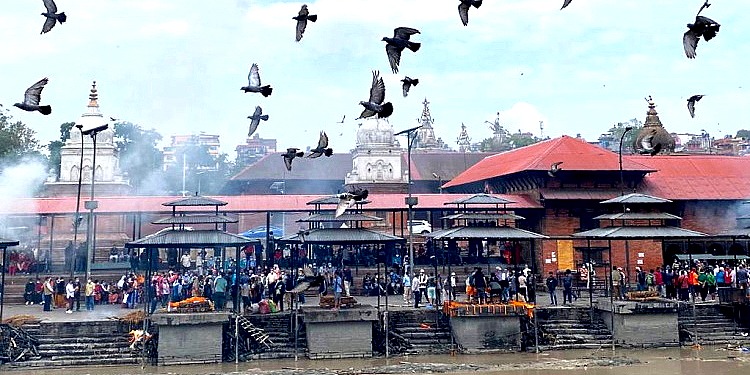
As a matter of fact, the Nepalis are no strangers to us because they constitute a very important pillar in many of Malaysia’s residential neighbourhoods and SMEs, working as security guards or factory operators. Notably, the Nepali people are mostly very hardworking, kind and faithful, and they take very good care of their families, too.
Trekking along the Annapurna Trek, we were humming the popular local folk song Resham Firiri as we immersed ourselves in the thick foliage of ancient forests. The local tour guides generally believe that after the white clouds have floated past us, what will come next is the sunny clear blue sky and the splendid sight of the snow-capped peaks of the Himalayas in the distance!
As we moved on, we were greeted by the smiling mountain people along our way: Hey, Malaysians, how are you? Namaste!
It was drizzling at five in the morning, but we were overexcited to have reached the top of the 3,210-meter Poon Hill after trekking for a total of 35 kilometres in our 21-hour trekking tour! The natural beauty of Nepal is simply breathtaking!
P/S: Love trekking in Nepal? Let’s make a date this September to challenge the ABC (Annapurna Base Camp) route together!
(Lee San is Founder and Group Executive Chairman of Apple Vacations. He has travelled to 132 countries, six continents, and enjoys sharing his travel stories and insights. He has also authored five books.)
ADVERTISEMENT
ADVERTISEMENT






